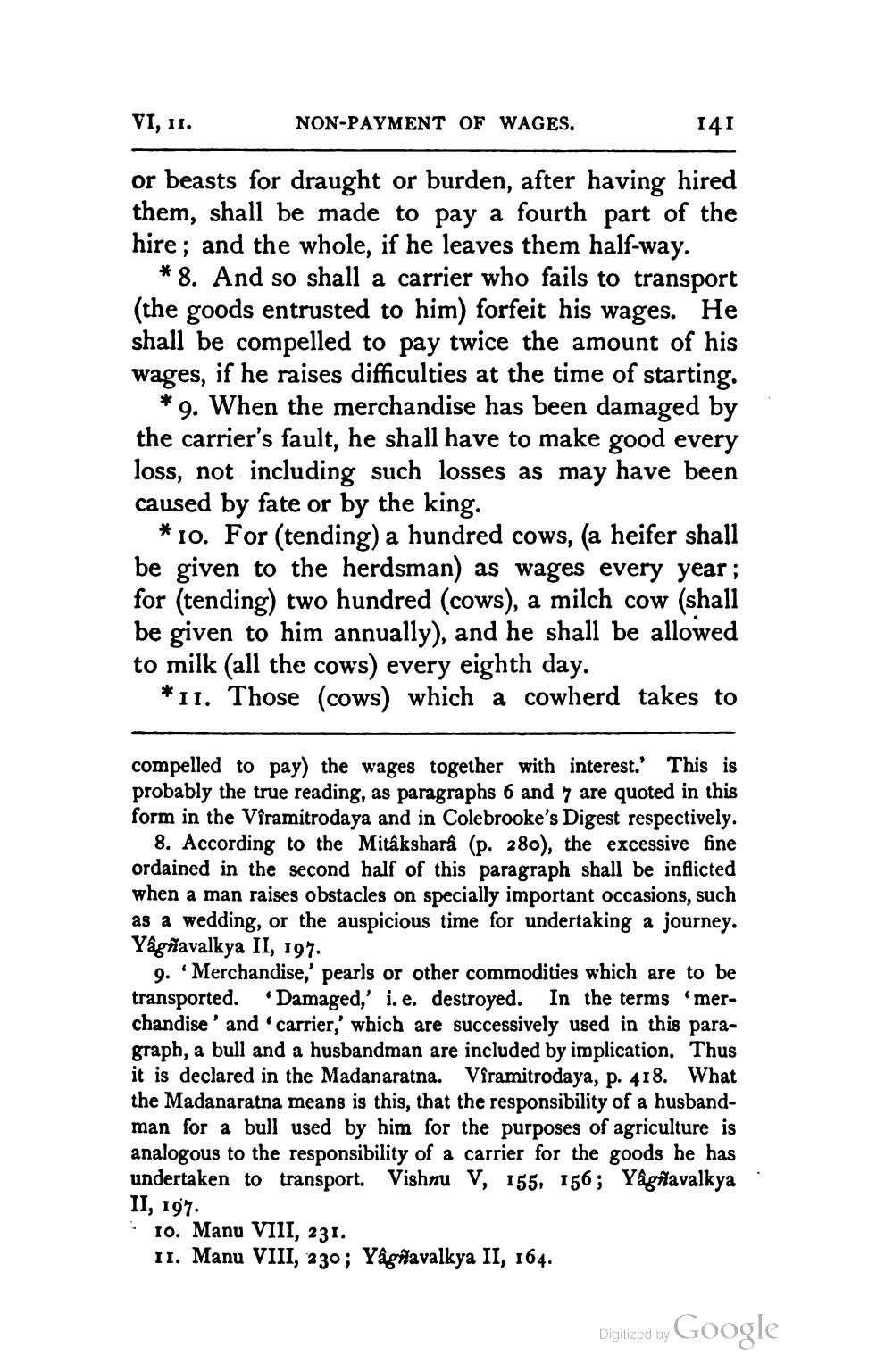________________
VI, 11.
NON-PAYMENT OF WAGES.
141
or beasts for draught or burden, after having hired them, shall be made to pay a fourth part of the hire; and the whole, if he leaves them half-way.
*8. And so shall a carrier who fails to transport (the goods entrusted to him) forfeit his wages. He shall be compelled to pay twice the amount of his wages, if he raises difficulties at the time of starting.
* 9. When the merchandise has been damaged by the carrier's fault, he shall have to make good every loss, not including such losses as may have been caused by fate or by the king.
* 10. For (tending) a hundred cows, (a heifer shall be given to the herdsman) as wages every year; for (tending) two hundred (cows), a milch cow (shall be given to him annually), and he shall be allowed to milk (all the cows) every eighth day.
*11. Those (cows) which a cowherd takes to
compelled to pay) the wages together with interest.' This is probably the true reading, as paragraphs 6 and 7 are quoted in this form in the Vîramitrodaya and in Colebrooke's Digest respectively.
8. According to the Mitakshara (p. 280), the excessive fine ordained in the second half of this paragraph shall be inflicted when a man raises obstacles on specially important occasions, such as a wedding, or the auspicious time for undertaking a journey. Yâgñavalkya II, 197.
9. Merchandise,' pearls or other commodities which are to be transported. Damaged,' i.e. destroyed. In the terms 'merchandise' and 'carrier,' which are successively used in this paragraph, a bull and a husbandman are included by implication. Thus it is declared in the Madanaratna. Vîramitrodaya, p. 418. What the Madanaratna means is this, that the responsibility of a husbandman for a bull used by him for the purposes of agriculture is analogous to the responsibility of a carrier for the goods he has undertaken to transport. Vishnu V, 155, 156; Yågravalkya II, 197.
10. Manu VIII, 231. 11. Manu VIII, 230; Yaghavalkya II, 164.
Digitized by Google




